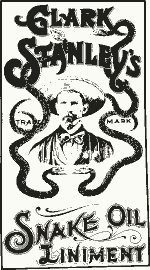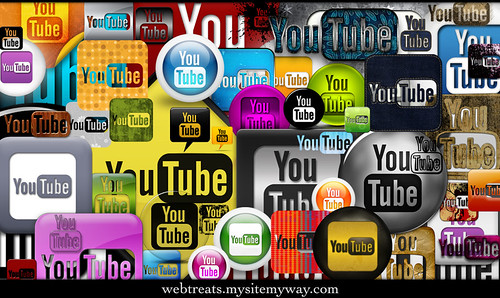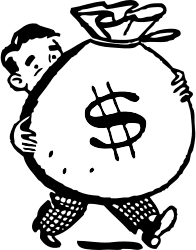Even the most celebrated and well-loved authors show off quotes from colleagues, reviewers and prestigious publications. For indie writers, review quotes are a valuable commodity. Many indies make it a habit to tweet review quotes to market their work, and some include them in their book blurbs and websites. I even put some of mine in one of my trailers. Movies, books, magazines, music -- lots of products are promoted with glowing, intriguing and enticing quotes from critics and supporters. But there is a certain finesse to choosing review quotes, and to displaying them, that some indies don't seem to possess. How do you use yours?
On Review Quotes
I've been writing on the topic of reviews a lot lately, but only because they're an endless source of fascination. I also happened to see something a little strange recently, and can't help but to blog about it. Besides, it naturally follows that once you've learned
how to get reviews, you're going to want to
do something with them...so why not pull a few quotes out of there?
Go ahead and try. It's easy enough for the likes of Stephen King, but indie authors face all sorts of problems. In reality, the traditionally-published authors probably have the same difficulties -- but let's face it, they usually have a wider pool of reviews from which to draw their quotes. Indies have to work with what they're given, but don't let a shallow well lead you down the primrose path of bad decisions.
Acceptable Source Material
We all have the great honor of living in the Information Age, where just about everyone and everything is online. This means that indie writers have multiple sources from which they can pull their reviews. Or...do they? Don't be so anxious to grab marketable quotes that you cross the boundaries of common courtesy...or worse, copyright law.
If a blogger or online writer creates a review of your book on their site, however brief, you are absolutely allowed to use it any piece of it as a review quote, but only if you cite both the writer and the site where the quote originally appeared. The one who created the quote owns the copyright to it, either officially or unofficially, and without proper citation you could be accused of infringement and/or plagiarism.
If someone reviews your work on Amazon, B&N, or any other site where your work is being sold, use the quotes! Again, cite the name of the reviewer (even if they are using some sort of alias) and on which site this quote appeared.
Has someone reviewed your book on Goodreads, made a comment about it on Facebook or Tweeted about it? You can most certainly re-publish that quote, so long as you cite the user name and the social media site in question.
Now we're moving into the gray area. In most circumstances, you are probably safe using quotes about your book, or you as a writer, that have appeared on publish message boards. I emphasize public. However, even in this circumstance it's good form to directly ask the person who wrote the quote if you're at liberty to use it, unless they have previously stated that they are willing to have their words put on public display. You should absolutely ask the poster before you publish anything from a private message board, such as one that requires a username and password to view.
Now things are getting even trickier. Electronic mail is not guaranteed to any sort of privacy, and most people who use it know that it's always subject to being viewed by a third party (there are way too many media stories about email accounts being hacked). It's not technically a safe form of communication, however in all polite societies there does exist a covenant of trust between parties who are corresponding even via email. I am not a lawyer, but in doing a (very brief and not at all thorough) cursory check on the subject, emails probably are not protected by copyright law unless they specifically contain material that has been copyrighted. Everyday correspondence obviously would not meet this criteria.
However, that doesn't mean you should feel free to quote it in some sort of public forum. Some indie writers might be so hungry for useable quotes that anything and everything begins to look like fair game -- even emails from various literary agents and publishing houses. Lots of indies have previously submitted work to the more traditional book types, and some may have received encouraging and promising responses. Is it cool to use some of these responses as quotes for marketing purposes?
That all depends. The short answer is...well, yes. Legally, it is probably okay to pull quotes from emails unless those mails are somehow protected by some sort of privacy agreement that's been implemented by the website itself. But the longer answer advises against it, unless certain conditions have first been met. If you get permission to use quotes from those emails from the person or persons who wrote them, then publish away. Hooray.
If you haven't obtained that permission, then you probably shouldn't. Common decency and courtesy are really the only thing holding you back, but let that be enough. Email exchanges between two parties carry an implied privacy protection with them, and if you break that trust with a literary agent or email answerer at a publishing house you could be burning an important bridge. You could even make other agents and staffers shy away from corresponding or communicating with you in the future. If you want to use it, ask for permission. They might say no, but they might not. Remember to cite the source of your quote correctly if you do obtain permission to publish their words.
Acceptable Quotes
Once you're quite sure all of your sources for all of your quotes are on the level, you might still have trouble pulling something usable. The secret to great quotes is the ellipsis, otherwise known as
... . As some of my readers might know from a
previous post, in non-fiction writing an ellipsis is used to show an omission of words. This means that you can eliminate poorly-spelled and weirdly-worded bits and pieces of reviews to get a quite salable quote, but you have to avoid overuse. Don't try to promote a quote that's completely butchered by your punctuation. If you can use one ellipsis, two at the outside, and create a great quote then go for it.
Don't forget that you can use brackets [for your quotes]. They're sort
of a get-out-of-hell-free card when it comes to re-publishing a quote.
Within the body of a quote, brackets are used to substitute words. Most
often, they're used to replace proper nouns with pronouns, or vice
versa, but other small changes may be made through them as well. They're
a powerful tool, so again, don't over-use them.
Don't re-publish profanity, unless you are specifically doing so on an age-controlled site with all the proper disclaimers and you are specifically targeting an older (and possibly not-so-conservative) group of readers. There are lots of format-friendly ways to delete an expletive to make a quote more family-friendly, but if you're going to let it fly then make sure you're only doing so in the proper venues. By the way, your Amazon page is not considered the proper venue for re-publishing a quote that contains profanity.
Quotes containing spoilers or too much summary information are to be
avoided. Remember that you want to whet the palate, not shove a piece of
chocolate cake down their throats. Your readers shouldn't even get a taste of your book from a review quote -- they should only get a deeply enticing whiff of its aroma.

























